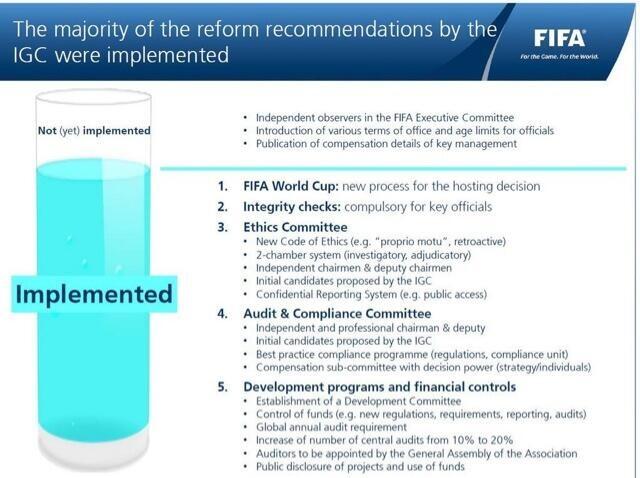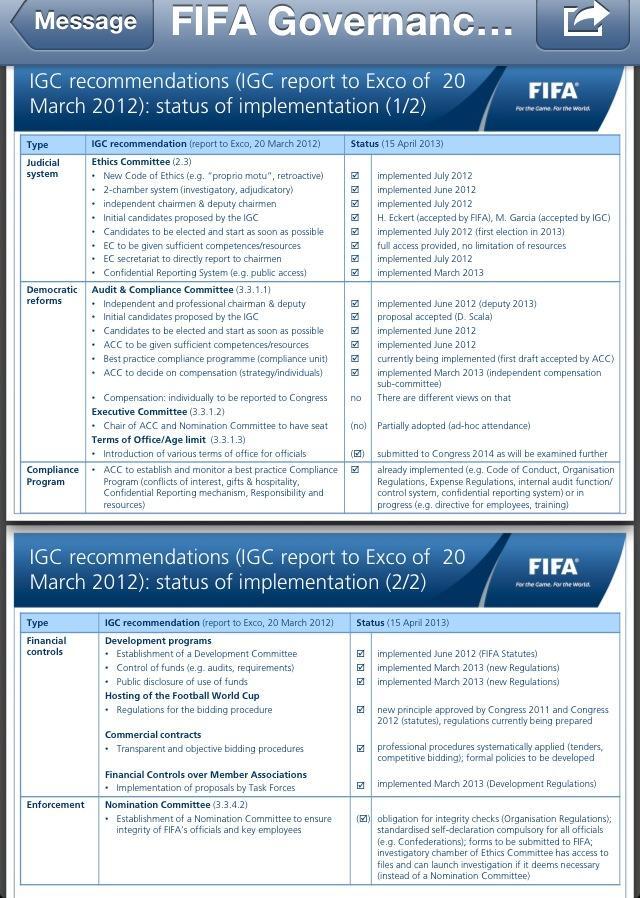High-ranking sources have told Insideworldfootball that a ballot was taken at Tuesday's executive committee meeting and that the result was 16-8 in favour of putting off a decision both on an upper age limit for executive committee members and/or the number of permitted terms of office.What this means, if accurate, is that Sunil Gulati, recently elected to the FIFA ExCo from CONCACAF, voted against the age limit and terms of office proposal. This is significant because up until being elected to the FIFA ExCo, Gulati was a member of the FIFA Independent Governance Committee which proposed the age and term limits.
Although there were valid and differing opinions within the executive committee over the correct way forward, all eight votes in favour of dealing straight away with the concept of statute-changing age and term restrictions are understood to have come from FIFA's European members who were said to be frustrated that no-one else supported them.
Gulati thus rejected advice that he had proposed as "indispensable" as a member of the FIFA IGC (here in PDF).
Warshaw quotes one non-European member of the ExCo as saying the following:
"It was the right decision," one non-European executive committee member told Insideworldfootball. "It would never have got the three-quarters majority needed and may never have therefore seen the light of day at all. At least this way we have another year to all agree on something concrete."Given the American colloquialism, I'd wager that there is a good chance that this quote comes from Gulati. If so, then he is arguing that reform proposals should not be brought to the FIFA Congress for the simple reason that they may not succeed. This is a dubious line of argument. The Executive Committee could reintroduce such a measure next year regardless of what happens this year. Instead, Gulati is helping to torpedo reform from within. If the statement does not come from Gulati, then he still should answer why he voted against a reform that he earlier signed on to as "indispensable."
Either way, Gulati's behavior is a huge disappointment. The ExCo vote on the age and term limit reforms, and Sunil Gulati's behind-the-scenes actions at odds with his public recommendations does not suggest that he will be an active champion of reform from within. As president of US Soccer, Gulati operates without term limits. He has not yet said whether he believes they should be instituted.














